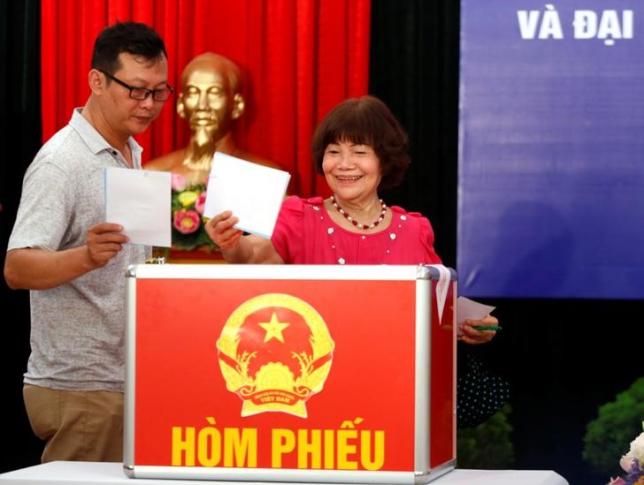Day of democracy in communist Vietnam in vote on party's parliament
HANOI: Vietnam will showcase its five-yearly day of democracy on Sunday with an election for a parliament tightly controlled by a Communist Party that is seeing unprecedented challenges to its four-decade political monopoly.
Some 69 million Vietnamese are registered to vote to choose representatives for a 500-seat National Assembly, with the ballot comprised overwhelmingly of candidates representing the secretive party or nominated by state institutions.
The election could turn out to be an anti-climax, after an astonishing swell of public interest in the scores of activists, celebrities and ordinary Vietnamese who tried to run as independent candidates, and it could test the sincerity of the party's promises of inclusiveness.
Almost all of the hopeful independents could not get on the ballot and were eliminated during the party's strict vetting processes, which many of them said was rigged to shut them out.
Among the failures was a well-known broadcaster who received unanimous support from a sample of constituents picked to judge him, and a teacher omitted because his dog defecated outside his neighbour's house.
The party has been on a publicity blitz to encourage people to vote.
Loudspeakers have been blaring on streets festooned with propaganda billboards, which feature the hammers and sickles and peasants and soldiers synonymous with the socialist ideology that vies for influence in a country with an insatiable appetite for capitalism.
"This is our proud right. All Vietnamese people have right and responsibility to vote and build the country," Nguyen Hanh Phuc, general secretary of the largely rubber stamp parliament, said on Friday.
Phuc insisted all 870 candidates would be treated equally, including those who are not party members and had nominated themselves to run as independents. There are only 11 self-nominated candidates.
DEMOCRACY STUNTS
The attempt by more than 100 Vietnamese to take on the party in the election was among a series of stunts by activists and intellectuals to try to pressure the reclusive rulers to give the public a bigger say in politics.
Activists completely re-wrote a draft constitution the party had sought public feedback on, but their effort was ignored.
They have also sent open letters pressuring the top brass to get tough on China's maritime assertiveness.
The pro-democracy movement is holding its own parallel election on Sunday that aims to show public support for political plurality in a parliament for which independent candidates won only four seats last time.
A downloadable smartphone application "La Phieu" (vote) has been created allowing users to each cast one vote, pitting the independents who were eliminated against the real the party candidates.
The most famous of those who failed to get on the ballot was popular singer Mai Khoi, 32, who is likened to Lady Gaga and has been hankering for a meeting with U.S. President Barack Obama when he visits Vietnam on Monday.
Mai Khoi wrote to Obama offering to sing for him and wants him to lean on the party leadership to make liberal concessions and overhaul election rules she said prevented her from raising issues in parliament.
"I want to meet with President Obama to urge him to push the Vietnamese government to implement the agreements that they have signed that would develop our democracy and human rights," she told Reuters.






